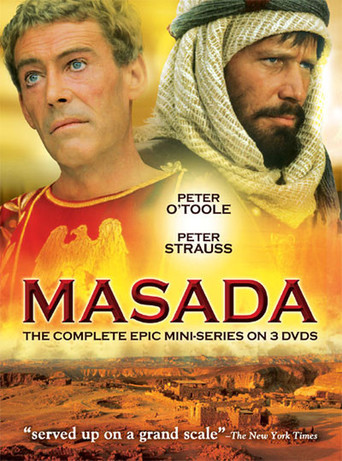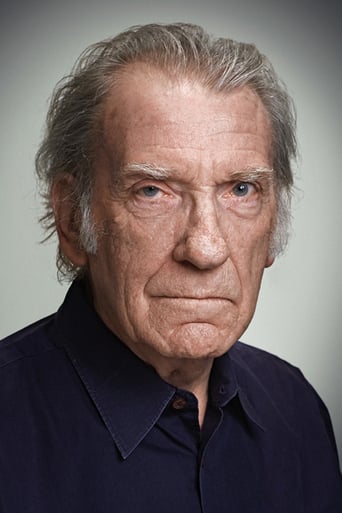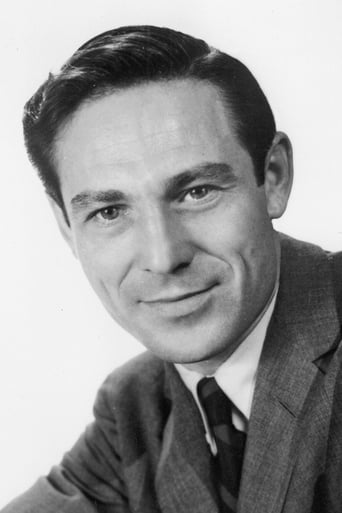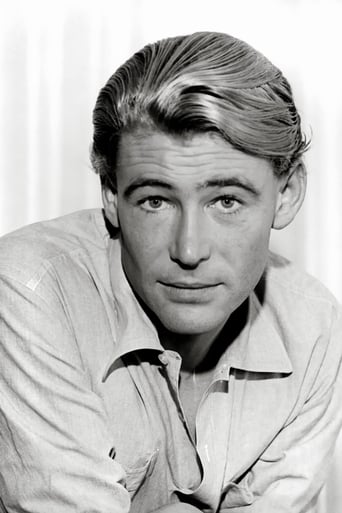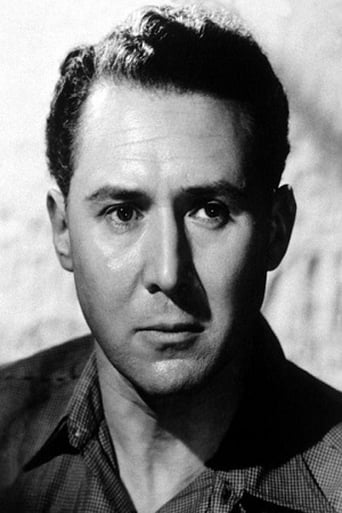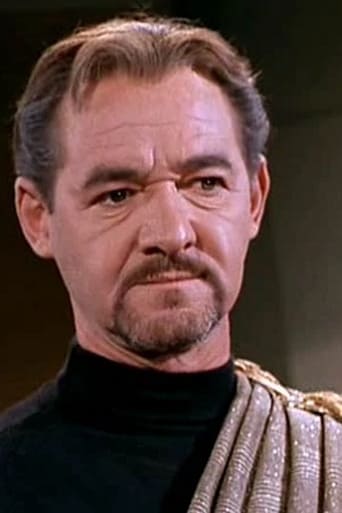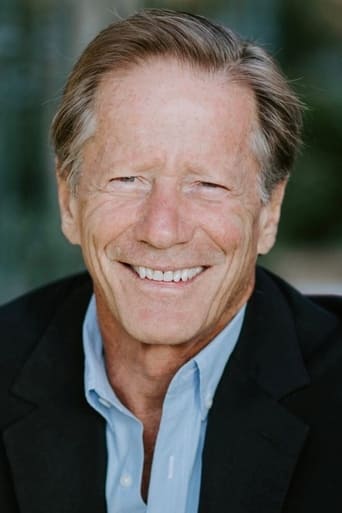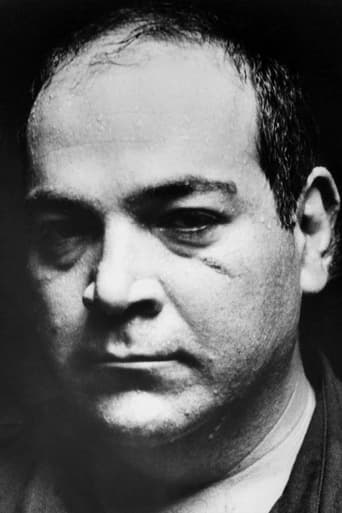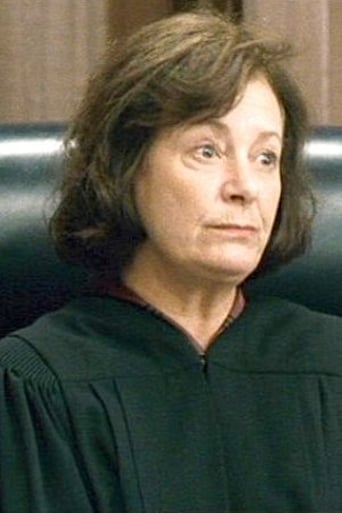After the destruction of the Second Temple, 900 Jewish zealots hold out against a 5000 man Roman legion on the mountaintop fortress of Masada.


Reviews
Although TV movies often show they are just that, this four-part series, despite the talky atmosphere at times was really excellent. It had a great and talented cast, though notably, the Americans were the good-guy Zealots and the British the bad-boy Romans. Peter O'Toole (The commander, Flavius Silva) is Irish, he sounds British, of course. The Roman invasion of Judea in prompts Eleazer (Peter Strauss) and his 'renegade' Zealots to take refuge in the virtually impregnable Masada mountain/rock fortress in the middle of what is now the Negev desert, by the Dead Sea. It was formally a Herodian retreat.Flavius Silva is tasked with the Emperor Vespasian's (Timothy West) verve to capture the Zealots. Even though Judea is under Roman rule, the last vestige of a free Judea is atop a rock and must be dealt with. The first major fight the Romans have on arrival is the heat of the daytime desert, which is telling upon the Romans, much to the amusement and gloating of the Zealots on the rock.Silva lays claim to a slave girl as his mistress, (Barbara Carrera) arguing the morals of her people's just cause to have a free Judea, at the same time as stating she hates the Romans, she hates the Zealots too. Anthony Quayle as Rubius Gallus plays the brilliant part so well, as Silva's chum and wise engineer, 'the only man for the job'. He informs Silva that the only way to assault the fortress is to bring a large part of a rocky outcrop over and place it against the Masada fortress as an assault ramp for a siege tower to move up against the fort walls. Silva trusts his friend and implements the plan. He makes sure it's built out of sight of the Zealots though, in spite of Gallus's mention that Eleazer wouldn't be able to do anything about it even if he saw it coming. Adding to Silva's woes, Emperor's minion, Pomponius Falco (David Warner) arrives, as he puts it 'to take the burden' off Silva. He's actually trying to take the glory, being the Emperor's sycophant. He informs Silva he has the Emperor's stamp to end the siege, at least more quickly, or to accelerate himself quickly up the ladder more like! "I've seen good men slit their wrists over him," remarks Gallus - who, when he cops an arrow in his neck whilst surveying the ramp, gives Falco the excuse he needs to take command of the siege over Silva. "That was your irreplaceable officer." says Falco, who had no love lost with Gallus. Silva though, shows his mettle and ousts the little worm, after Falco has barbarically - get this - put jews in the catapults and fired them up the mountainside!With all the main distractions dealt with, Gallus, on his death-bed managed to utter a few last words to his engineers to complete the task. So much so, that the ramp is completed and the siege tower ready to ascend it. The main feature of the siege tower is, that it has a battering-ram mounted at the top of it, with metal plates in the front for protection. Gallus informed his men that the tower must be sent up the ramp at a certain time of day, so that the Zealots would have the sun in their eyes as the tower approaches them. On the day of the assault, the tower ascends the ramp and the scene, with special effects is very well-handled with the suspense, action and incidental music. One thing that amazes you is, that the Romans have the slaves 'pull' the tower up the ramp. (Blocks are sunk into the ramp and with pulleys, the tower is 'pulled' up the ramp - it seems a major engineering feat of the day and shows the Romans' resilience and determination in the field). "If I'd been here a thousand years, I'd have never thought of that.". said Falco earlier. As Eleazer and his 'rebels' are astounded by this shocking new tactic, he seems dumbfounded and unable to grasp the situation. Then he informs the rest of the Zealots to strip beams from Herod's old palace and put the earth between the beams, behind the stone wall that is the ram's target (To absorb the blows like a sponge). After a battle between Roman archers on the tower and Eleazer's, the ram reaches the walls and is pushed against it. Eleazer's new wall is absorbing the blows well. This stops the wall from shattering. The Romans are now perplexed. "We haven't been supplied with a wonder worker to raise Rubius Gallus from the dead, so I'm open to suggestions!" says Silva to his officers. After much debating, they set fire to the exposed beams of Eleazer's wonder walls. But then, the wind changes and it blows against the assault tower. The Romans sound the recall, intending taking the fort in the morning. The Zealots rejoice, but Eleazer knows, that it may only be putting off the inevitable for a while. "Remember who built it," says one of Silva's officers, "The iron (front) plates won't melt before the wind changes." Silva replies: "And they can't build another wall in the same place, the fire will keep them away." On Silva's men entering unopposed, there is an eerie silence. The Zealots have all taken their lives rather than be taken or killed by the Romans.This had a good script, though it is part-taken from a book, 'The Antagonists', some heady wheeling and dealing and corruption from the Roman side whilst, quite rightly, really, showing the Zealots as spirited and stubborn in the face of aggression. So much so, that Masada now serves as the 'swearing in' ceremony of the Israeli Defence Forces. A great mini-epic.
Masada is an average epic that has been treated generously. It's not horrible, but it could have been better. A good review must look at, aside from the basics, the film's themes, symbolism, and the quality of the plot. The film is inaccurate, but why? What is the film's message? And does the film's message and inaccuracy make it worth buying, renting, or ignoring? But first, the basics. The plot is simple: good guys versus bad guys. No clever twists, except in the end perhaps, and nothing original for its time. The setting is the Jewish Revolt of 66-74 AD. The Romans have just captured Jerusalem, but a handful of zealous freedom fighters escape to the fortress Masada. It is a spectacle in the mold of Spartacus and Ben-Hur, one of the last films of that style. The plot unfolds well but is not engaging or intellectual. Romance is included in the film between the Roman general Silva (O' Toole) and a Jewish whore. It was unnecessary.The acting is mixed. Americans were cast to play the underdogs, the Jews, and Englishmen were cast to play the Romans. As a result talent was concentrated on the Roman side which made for uneven cinema. Peter Strauss who played the Jewish leader is an exception, but the rest were nonentities. On the Roman side there were veteran British actors of tremendous quality such as Peter O'Toole (who occasionally overacts), Anthony Quayle, and David Warner. O'Toole is a real actor. He has actually gotten on stage and performed Shakespeare. In other words the bad guys are not cardboard stands, unlike Star Wars for example. However, the film is heavily biased in favor of the Jews. The film is poor history, but good propaganda. Becket and Lawrence of Arabia were epics that had good history but were still enjoyable. Masada is nowhere near their caliber. Issues have been raised about the mediocre costume and armor of the characters. In my opinion this is a non-issue, there are far more important problems with the film, and that is coming from a Roman military historian. If the film had a better script it would have been a better film regardless of what armor the Roman legionaries wore. Masada and the film's message should be placed into context. The Jews had religious freedom in the Empire, and this is indicated in several passages of Josephus, a Jewish historian (14.228, 1.194, 14.213-16, 14.225-7, 16.162-5). Roman procurators in Judaea also attempted to accommodate Jewish custom, especially towards Jerusalem and the Temple. What the Romans would not give was political freedom. But that status was true for all of Rome's subjects, and only some Jews actively sought independence. I say "some Jews" because the desire for violent resistance against Rome was not universal. There were, however, a number of self-proclaimed messiahs that were stirring up the masses. The film's message is that it is better to die on your feet than to live on your knees. The Jews bravely (or foolhardily) attempted to throw off Roman yoke and suffered horribly as a result. A better philosophy is to live on your feet than to die on your knees, as the rest of Rome's subjects did. The film does not discuss this complicated dilemma, as I said it is anything but original. The Jews did not stand a chance. Whatever one thinks of the Romans they produced a superb fighting machine. Opposition against it was largely futile, or extremely costly, as the Germans learned earlier in the century.The film is neither creative nor enlightening. The goal of propaganda is not to be truthful. The film is Israeli propaganda. The cast and production were American and British, Israel is America's most important ally in the Middle East, and the film had complete support from the Israeli government. At the beginning and end of the film it shows Israeli soldiers climbing Masada, raising Israel's flag, and claiming Masada will never fall again. Did the Romans only represent Romans? Of course not, just as Jurassic Park was a not movie about dinosaurs. The Jews faced a vastly superior force in the 66-74 revolt against Rome. This was also true for the Israeli Defense Force in 1948-9 against the coalition of Arab states. It is symbolism, but unimaginative. It is highly melodramatic. Silva is also overly sympathetic to the Jewish cause, and there is no evidence that he an Eleazar had any sort of contact.The film is historically inaccurate, about 3/4s of it. This is also not surprising. It was based off a fictional novel and not the ancient authorities. It perpetuates the national myth that Masada was garrisoned by the Zealots. It was not, it was garrisoned by Sicarii. The Sicarii were terrorists, or freedom-fighters, depending on your perspective. They murdered 700 women and children at Engaddi (4.7.1). They actively murdered and plundered the property of Jews that accepted Roman rule (7.8.1). These tactics are used by the modern terrorist groups of Hamas, PLO and others against the Israelis. The same is true for insurgents against the U.S. occupation in Iraq. So are these people freedom-fighters and heroes as well? Another interesting dilemma that the film could have explored but did not, for obvious reasons. If you asked the Palestinians, who are held in an economic stranglehold by Israel, the new Romans are ironically the Israelis. The Sicarii most resemble the Kach party in modern Israel, the criminal, antidemocratic, racist party that wants all Arabs expelled from Israel.The film was released in 1981, the same year Israeli aircraft destroyed a multi-story apartment block that contained PLO. The attack killed around 300 civilians and resulted in worldwide condemnation and U.S. embargo on aircraft to Israel. Thus governments can also be terrorist groups. To return to Masada, I own the film because I enjoy watching the Roman army in action. That is the only reason why I own it.
"Masada" is a great epic that goes far beyond the trite boundaries of this kind of films, in that it deals with key moral issues brought forth to the mind by the experience of warfare in a very reflective and convincing way. It gives insight to the inner struggle of a Roman general in his quest for confronting and eventually understanding the contradictions that lie beneath the logic of man's constant fight for power and control, and how it slowly rots his spiritual capacity. For instance, he asks himself: Who is really the winner? Who the loser? How do you kill faith? ... The final 10 minute-plus-monologue of the brilliant O'Toole maybe well be one of the finest moments in the history of film! Simply breathtaking! Check it out!
Masada is amazing, in part, because it is a true story and also because it is truly a fascinating drama. Originally filmed as a mini-series, at 6 plus hours, it has been released in short (movie length) form but don't bother with that edition. Even though it (the six hour video set) is quite long, not one minute will bore you. It is a story of the military...in a battle of wits against (Jewish) patriots. The cast is superb, with Americans playing the Jews and British actors as the Romans. The lowly soldiers speaking in "middle class" dialect while the officers sound more aristocratic...a really nice touch. Peter O'Toole has never been better in his role as Flavius Silva commander of the Roman regiment dispatched by Rome to capture the Jews holding out at Masada...a huge, almost impregnable mountain fortress. Anthony Quayle and David Warner also do some of their best work ever. Peter Straus as Eleazar, leader of the Jews is passionate in his convictions and the rest of the cast shines also. The mind games they utilize on each other are fascinating and make for engrossing drama. It is truly one of the best mini-series, or historical epics ever put to film. The newly released 4 video set consists of 90 mins. per video so one can enjoy Masada over four evenings. Note: As of 2007 it is now available on DVD. The viewer will feel it is time well spent.
